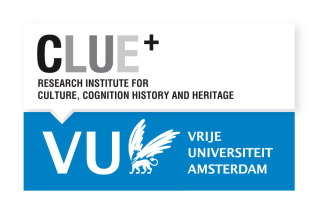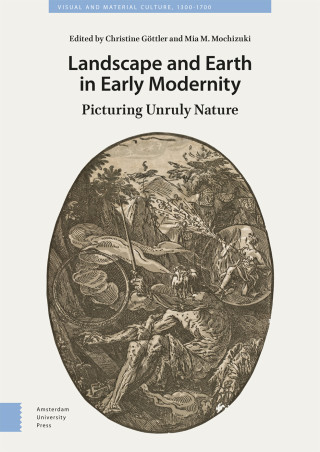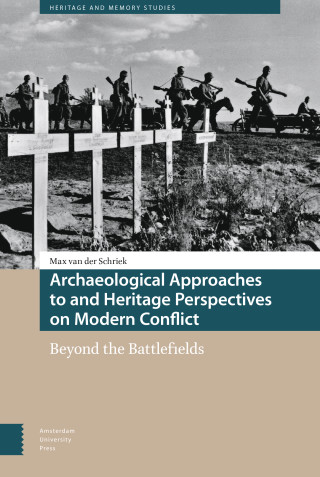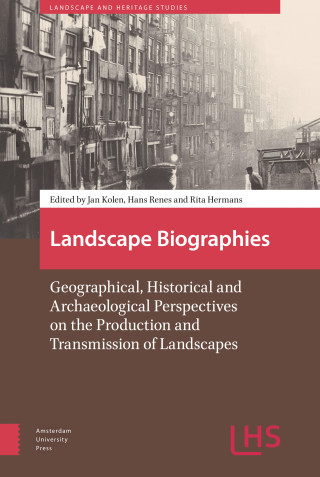

- Titel
- Archaeological Perspectives on Contested and Political Landscapes
- Redacteur
- Eduardo Herrera Malatesta
- Prijs
- € 128,99
- ISBN
- 9789048559442
- Uitvoering
- eBook PDF (Adobe DRM)
- Aantal pagina's
- 284
- Taal
- Engels
- Publicatiedatum
- 12 - 02 - 2025
- Afmetingen
- 15.6 x 23.4 cm
- Partner

- Categorieën
- Archaeology
- War, Conflict and Genocide Studies
- Heritage and Memory Studies
- Politics and Government
- Voorbeeld
- Download introductie
- Ook beschikbaar als
- Hardback - € 129,00
Chapter 1. Introduction: Contested and Political Landscapes - Eduardo Herrera Malatesta
Chapter 2. On Contested Taskscapes - Eduardo Herrera Malatesta
Chapter 3. Archaeology in the Tripartito: Landscape and the nation-state in the south-central Andes - Noa Corcoran-Tadd
Chapter 4. The Dramatized Landscape of Juktas: A topoanalytic approach to a Minoan peak sanctuary in Crete - Maria Chountasi
Chapter 5. Lived space of displaced people: A comparative approach to contested spaces in Iron Age Northern Mesopotamia and modern Berlin - Vera Egbers
Chapter 6. The Landscape of Moving Tree Trunks and Other Unnatural Phenomenon: Contesting Archaeologies from the Global South - O. Hugo Benavides
Chapter 7. Landscapes of power and resilience: Aristocratic-driven landscapes in the Duero basin - Jesús García Sánchez
Chapter 8. Changing Landscapes, Changing People in Northwestern New Mexico - Kellam Throgmorton
Chapter 9. Cruzando la Cerca: Indigenous Mounded Landscapes in Nicaragua - Alexander Geurds
Chapter 10. Pretoria, drawing board of the Apartheid regime - David Koren
Chapter 11. Discussion: Reconsidering all that you see: reassessing landscapes in archaeology - Juan P. Bellón and Carmen Rueda
Chapter 2. On Contested Taskscapes - Eduardo Herrera Malatesta
Chapter 3. Archaeology in the Tripartito: Landscape and the nation-state in the south-central Andes - Noa Corcoran-Tadd
Chapter 4. The Dramatized Landscape of Juktas: A topoanalytic approach to a Minoan peak sanctuary in Crete - Maria Chountasi
Chapter 5. Lived space of displaced people: A comparative approach to contested spaces in Iron Age Northern Mesopotamia and modern Berlin - Vera Egbers
Chapter 6. The Landscape of Moving Tree Trunks and Other Unnatural Phenomenon: Contesting Archaeologies from the Global South - O. Hugo Benavides
Chapter 7. Landscapes of power and resilience: Aristocratic-driven landscapes in the Duero basin - Jesús García Sánchez
Chapter 8. Changing Landscapes, Changing People in Northwestern New Mexico - Kellam Throgmorton
Chapter 9. Cruzando la Cerca: Indigenous Mounded Landscapes in Nicaragua - Alexander Geurds
Chapter 10. Pretoria, drawing board of the Apartheid regime - David Koren
Chapter 11. Discussion: Reconsidering all that you see: reassessing landscapes in archaeology - Juan P. Bellón and Carmen Rueda
Recensies en Artikelen
''This volume provides exciting new insights into the archaeological study of contested landscapes, bringing together contributions from around the world. Its landscape archaeology approach puts the focus on conflicts and contestations, explicitly looking at landscapes as arenas for analysing political struggles. Thus, it represents a significant contribution to the growing body of literature that engages with the more political dimensions of the past – and present''.
- Manuel Fernández-Götz, School of Archaeology, University of Oxford
- Manuel Fernández-Götz, School of Archaeology, University of Oxford
Eduardo Herrera Malatesta (red.)
Archaeological Perspectives on Contested and Political Landscapes
De onderstaande tekst is niet beschikbaar in het Nederlands en wordt in het Engels weergegeven.
This book focuses on alternative definitions of landscape in archaeology, particularly those that explicitly address landscapes’ political aspects. In doing so, this volume emphasizes the non-static, dialogic nature of landscape within a community and acknowledges how a community’s composition and its relationship with the landscape can lead to tensions and even violent conflicts with other groups. It highlights the relevance of considering movement, borders, and conflict as sources for understanding how people create their own landscapes and how they reshape them in times of political conflict. For example, in contexts of colonization and war, people are forced to adapt to new politics and hierarchies as they see their personal and communal understanding of the world deeply transformed, something visible even today as political tensions constantly reshape local and global landscapes. Understanding how landscapes were created and contested in the past is essential for understanding their political, economic, and cultural manifestations in the present in order to better organize ourselves for a truly integrative future.
Redacteur
Eduardo Herrera Malatesta
Eduardo Herrera Malatesta is a Venezuelan archaeologist specialising in Landscape research, regional surveys, and Geographical Information Systems. He studied anthropology with a specialisation in archaeology at the Universidad Central de Venezuela (BA) and Instituto Venezolano de Investigaciones Cientificas (MA). He then specialised in GIS in archaeology at the University College London (MSc), and later, he got his PhD in Archaeology at Leiden University. He has held postdoctoral positions at Leiden University and later at Aarhus University as a Marie Curie postdoctoral fellow. He has recently started a position as a postdoctoral researcher at Leiden University.
Gerelateerde boeken

Archaeological Perspectives on Contested and Political Landscapes
Eduardo Herrera Malatesta (red.)

Landscape and Earth in Early Modernity
Christine Göttler, Mia Mochizuki (red.)

Archaeological Approaches to and Heritage Perspectives on Modern Conflict
Max van der Schriek

Landscape Biographies
Rita Hermans, Jan Kolen, Hans Renes (red.)
